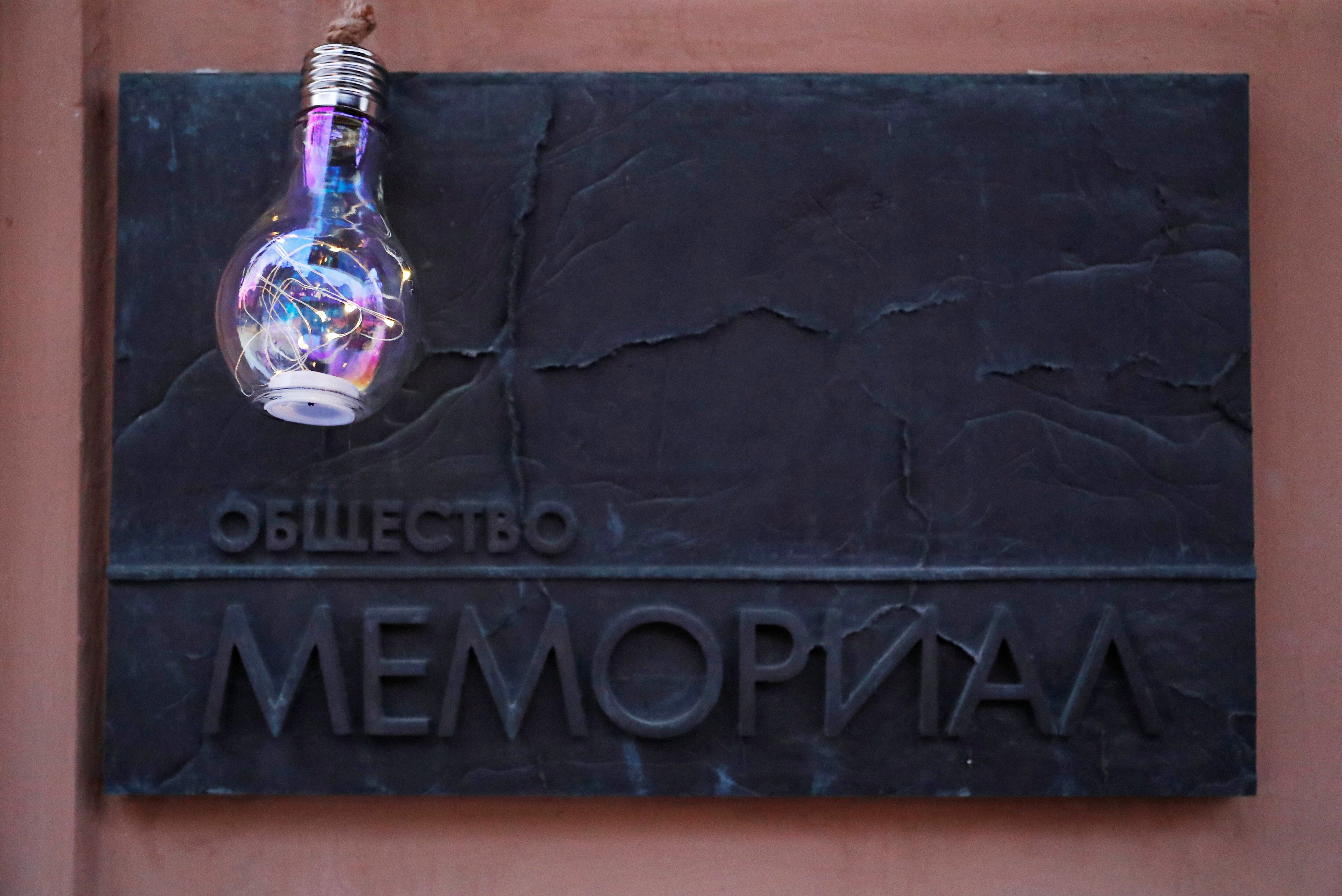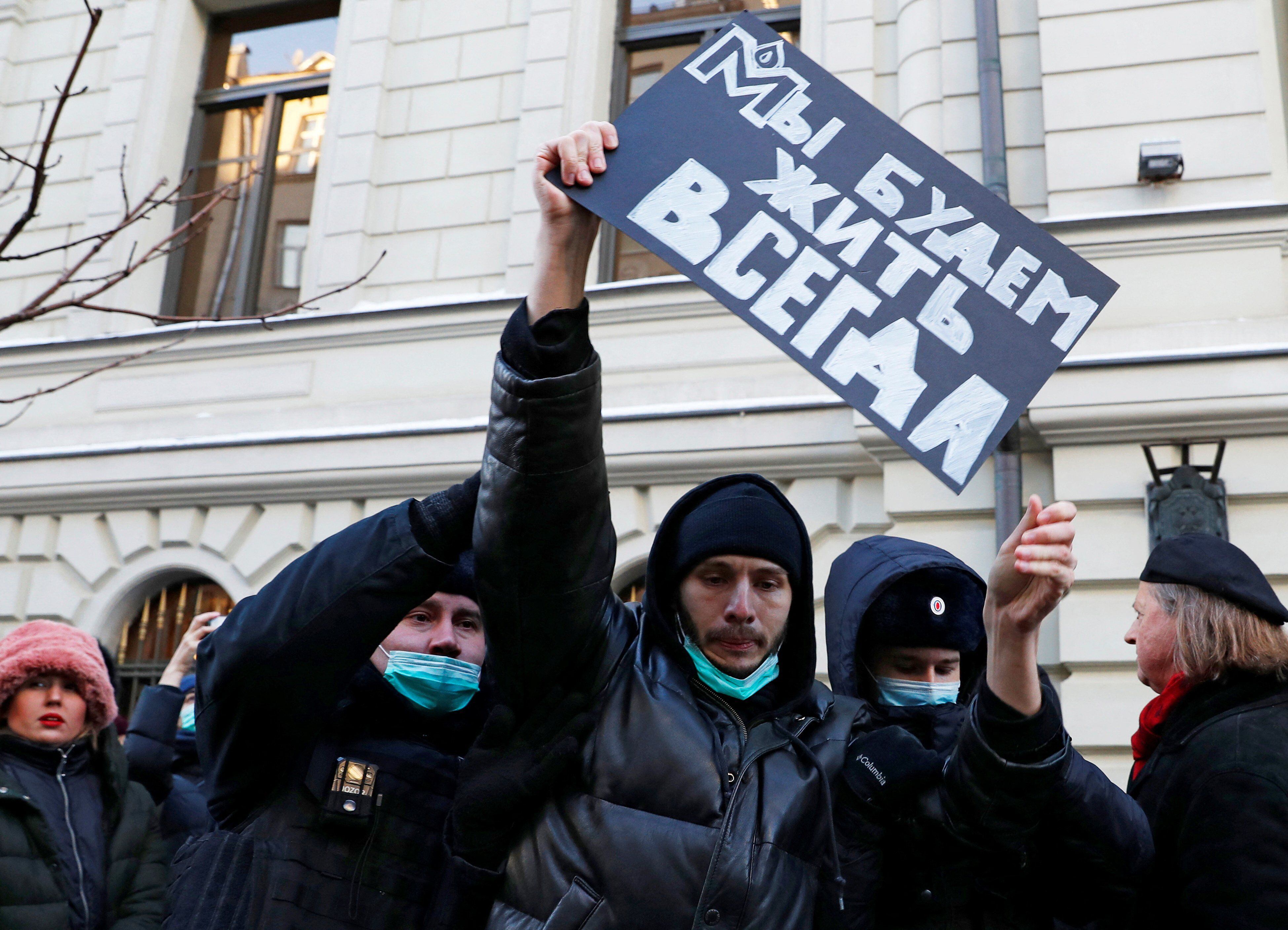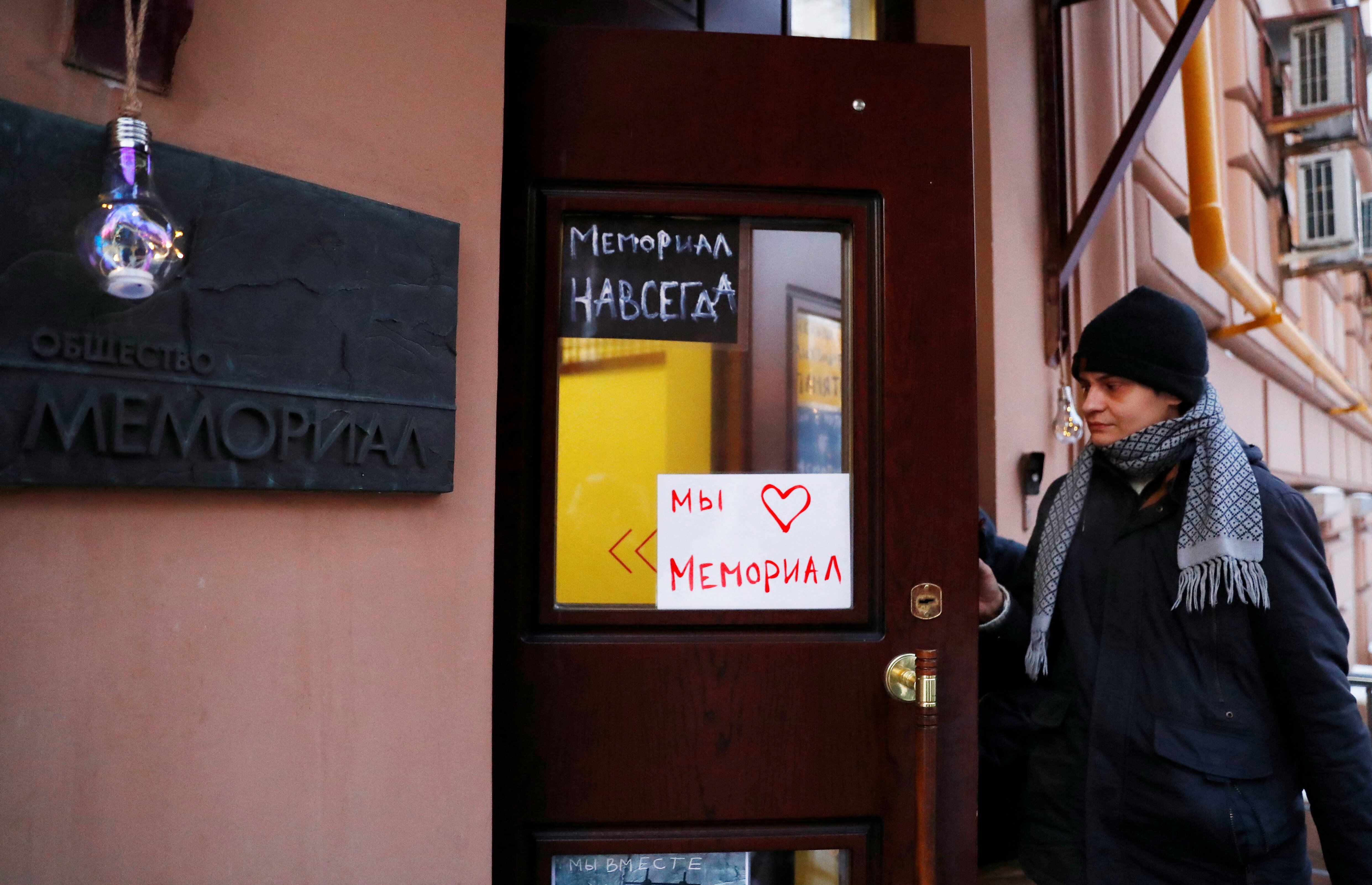It was the center of human rights oldest and most emblematic of Russia and enjoyed great prestige even outside the country, but Vladimir Putin liquidated it. In less than two days the courts closed Memorial International, considered the voice of the Soviet “reprisals,” and dissolved one of its branches, the Memorial Human Rights Center. The global outrage has been immediate.
The prosecution charged the Memorial Human Rights Defense Center to breach its obligations as “foreign agent“, A category to which it belongs since 2016. It also states that the organization and its branches make apology”terrorism and extremism“And support”protest movements aimed at destabilizing the country”.
ALSO READ: The new sentence in Russia against Yury Dmitriev, the historian who exposed the gulags and crimes of the Stalin era to the world
“Creates a false image of the Soviet Union as a terrorist state”Stated the Russian Supreme Court when announcing its decision to dissolve the organization.
Memorial, which was the last bastion of dissent in a country that persecutes voices critical of the government, assured that he will appeal the ruling and will fight his fight even before the European Court of Human Rights.
“Memorial it is a special organization with its own ideology. We combine what is called relevant activities of human rights with historical studies and understanding of the historical path of Russia in the 20th century. It seems that such a union does not please someone in the Russian leadership”Said Oleg Orlov, member of the board of Memorial, Outside court.
An emblematic organization
Memorial it was created at a time when the Soviet Union had not yet disappeared. It was 1989 when a group of Soviet dissidents – among them the Nobel Peace Prize winner Andrei Sakharov; the former Russian president, Boris Yeltsin; the thinker Dmitri Likhachev or the poet Yevgueni Yevtushenko- founded the organization to focus on Stalinist crimes and the gulags.
After the fall of the Soviet Union, the organization also committed itself to defending the human rights and minorities in Russia.
During the two Chechen wars (1990 and 2000), Memorial reported abuses by Russian forces and their local allies. In 2009, its person in charge in this region of the Caucasus was assassinated in a crime that has not yet been elucidated.
In addition to bearing witness to the history of the victims of Stalinism, in recent years the Memorial Human Rights Center he has campaigned against rights abuses in present-day Russia and keeps a tally of political prisoners.
“The group became a symbol of the country’s emerging democracy after the collapse of the Soviet Union.”Says the American newspaper“ The New York Times ”.
The Russians Mikhail Gorbachev and Dmitry Murátov, both winners of the Nobel Peace Prize, wrote to the Prosecutor’s Office in November to withdraw the lawsuit against Memorial and stressed that the activities of the organization since its founding have been aimed at reestablishing of historical justice and the preservation of the memory of hundreds of thousands of people who suffered humiliation during the Soviet era.
Memorial received the Sakharov Prize from the European Parliament in 2009 and has been a candidate for the Nobel Peace Prize on several occasions.
Rising chase and its motives
The actions against Memorial and the Memorial Center for Human Rights They close a year of repression against critics of the Kremlin not seen since the Soviet era. In fact, the increase in persecution is visible in the closure of independent media and various NGOs, as well as in the dismantling of the movement of the jailed opposition leader Alexéi Navalni.
The Memorial’s list of political prisoners amounts to 435 names, twice the number recognized by the government at the end of the Soviet period. In addition, the organization accuses the Kremlin and the state security organs of trying to prevent it from continuing to investigate the crimes committed during the USSR and since 1991, especially since the current president, Vladimir Putin, came to power in 2000.
Marie Struthers, Amnesty International Director for Eastern Europe and Central Asia, has stated that the Memorial Center for Human Rights has been closed for false accusations that “serve as little more than a pretext to silence dissent and block people’s ability to come together to defend the human rights, and must be withdrawn immediately”.
The British newspaper “The Guardian” points out that the “Memorial International’s closure marks a turning point in Russia’s modern history, as efforts to publicize crimes committed by Soviet leaders like Joseph Stalin have become taboo 30 years after secret government archives were opened. after the end of the Soviet Union. While not seeking a return to the Soviet past, Putin has become deeply sensitive to any criticism from groups like Memorial.”.
In addition, “The New York Times” also points out that together, the closures of both centers “They reflected President Vladimir Putin’s determination to control the narrative of some of the most painful and repressive chapters in Russian history and to keep dissidents at bay. Since January, the Kremlin has accelerated a campaign to crack down on dissent, cracking down on independent media, religious groups and political opponents.”.
According to the outlet, Putin is making major efforts to reformulate Russia’s legacy as a series of glorious achievements and to soften the image of the often brutal Soviet regime that is portrayed by organizations it does not control.
“In particular, Putin is eager to convince Russians that his country is surrounded by enemies who wish to monitor his demise, a tactic he has recently adopted in demanding that NATO ensure that it will not expand further east. As such, the Kremlin wants the Russian public to focus on foreign enemies rather than the crimes committed by local dictators.”Says the newspaper.
- USA: coronavirus infections soar 66% in a week
- South America, from being the worst region in the world in a pandemic to the one with the highest vaccination
- Ómicron: the strict strategy of Chile, one of the world leaders in vaccination
- China extends quarantine as coronavirus rebounds in Europe and the United States
- What happened to the first person to receive the coronavirus vaccine in the United States?
.

:quality(75)/cloudfront-us-east-1.images.arcpublishing.com/elcomercio/VJ4KIP7XPRDJ3MEGK6TVSPU4ZA.JPG)







:quality(75)/cloudfront-us-east-1.images.arcpublishing.com/elcomercio/HVED7ORF5BAZXMXFHYD67VX5LU.jpeg)
